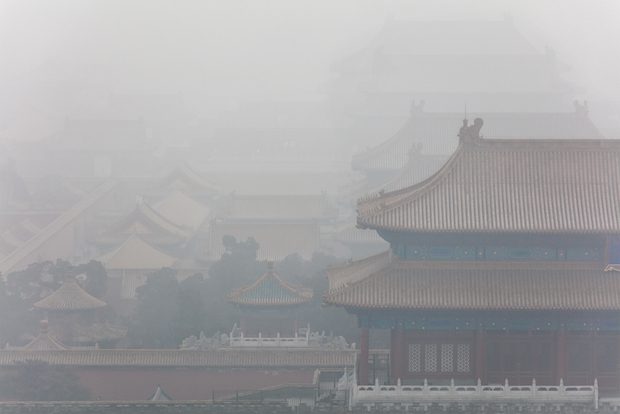It’s Worse In Modern China

A reader sends this fascinating blog post by a young American living in China. It’s quite something. It begins:
One of the benefits of living in China is a certain sense of perspective.
China exists outside of the Anglophone culture wars. It would not be accurate to say the Chinese don’t have an opinion or even a stake in American cultural crusades. They do. But our fights are not their fights, and even when they squabble over parallel issues it is on very different terms, terms quite divorced from those that led Anglophone politics to its current trajectory.
My time here has thus given me a rare vantage point to judge many of the claims made over the course of these campaigns. In few places is this sort of outside perspective more useful than when judging the claims of an American jeremiad. Jeremiading is a fine art. Its practitioners hail from lands both left and right, but my sympathies lie with the cultural traditionalists. You know the type. In America they find little but a shallow husk. For some it is the husk of a nation once great; for others it is the decaying remains of Western civilization itself. Few of these gloom-filled minds deny that wonders have marked their days on this earth. It is not that advances do not happen. It is just that each celebrated advance masks hundreds of more quiet destructions. These laments for worlds gone by are poignant; the best are truly beautiful. The best of the best, however, do not just lament. Every one of their portraits of the past is a depiction of a future—or more properly, a way of living worth devoting a future to.
At the heart of his piece is the claim, laid out below, that everything doom-and-gloomers (like Your Working Boy) say about the West is
Are you worried about political correctness gone awry, weaponized by mediocrities to defame the worthy, suffocating truth, holding honest inquiry hostage through fear and terror? That problem is worse in China.
Do you lament the loss of beauty in public life? Its loss as a cherished ideal of not just art and oratory but in the building of homes, chapels, bridges, and buildings? Its disappearance in the comings-and-goings of everyday life? That problem is worse in China.
Do you detest a rich, secluded, and self-satisfied cultural elite that despises, distrusts, and derides the uneducated and unwashed masses not lucky enough to live in one of their chosen urban hubs? That problem is worse in China.Are you sickened by crass materialism? Wealth chased, gained, and wasted for nothing more than vain display? Are you oppressed by the sight of children denied the joys of childhood, guided from one carefully structured resume-builder to the next by parents eternally hovering over their shoulders? Do you dread a hulking, bureaucratized leviathan, unaccountable to the people it serves, and so captured by special interests that even political leaders cannot control it? Are you worried by a despotic national government that plays king-maker in the economic sphere and crushes all opposition to its social programs into the dust? Do you fear a culture actively hostile to the free exercise of religion? Hostility that not only permeates through every layer of society, but is backed by the awesome power of the state?
These tooare all worse in China.
Only on one item from Esolen’s catalogue of decline can American society plausibly be described as more self-destructive than China’s. China has not hopped headlong down the rabbit’s hole of gender-bending. The Chinese have thus far proved impervious to this nonsense. But it would not be meet to conclude from this that Chinese society’s treatment of sex is healthier than the West’s. In far too many ways the opposite is true. Urban Chinese society is just as sex-obsessed as America’s, and in many realms (say, advertising) far less shameless about it. Prostitution is ubiquitous. For men over 30, visiting prostitutes is socially acceptable. In many situations these visits are not just acceptable, but expected. Many a boss believes he can’t trust his underlings until they have spent some time sinning together. No one blinks an eye at professional mistresses; a wealthy Chinese man is expected to keep up one of these “Little 3rds” and carouse about with karaoke bar hostesses and banquet call-girls. The worst of that culture has (thankfully) been cut down by Xi Jinping’s anti-corruption drive, but there is no evidence that government campaigns have had any effect on pornography abuse. As the standard joke goes whenever some Chinese millennial wants to mock government weakness: “They’ve been at the anti-porn campaign for ten years now, but none of you have had any problem getting your hands dirty!”
And so forth. That’s all interesting information to have, but here’s what makes the post worth reading. The author writes that if modern China is an amplification of the problems we in the West have, traditional China also offers the solutions, or at least opens the door to finding solutions:
The 21st century is not the first era Chinese have been offered a stark choice between success and virtue. If there is one theme that threads its way through the great sweep of the Chinese tradition, it is a tragic recognition that the world we live in is not designed to reward the life most worth living.
Read the whole thing. It’s exciting!
I’m interested to hear from readers who know something about Chinese tradition, including especially Chinese literary tradition, and who can expand on the claims made by this blogger.
Subscribe for as little as $5/mo to start commenting on Rod’s blog.